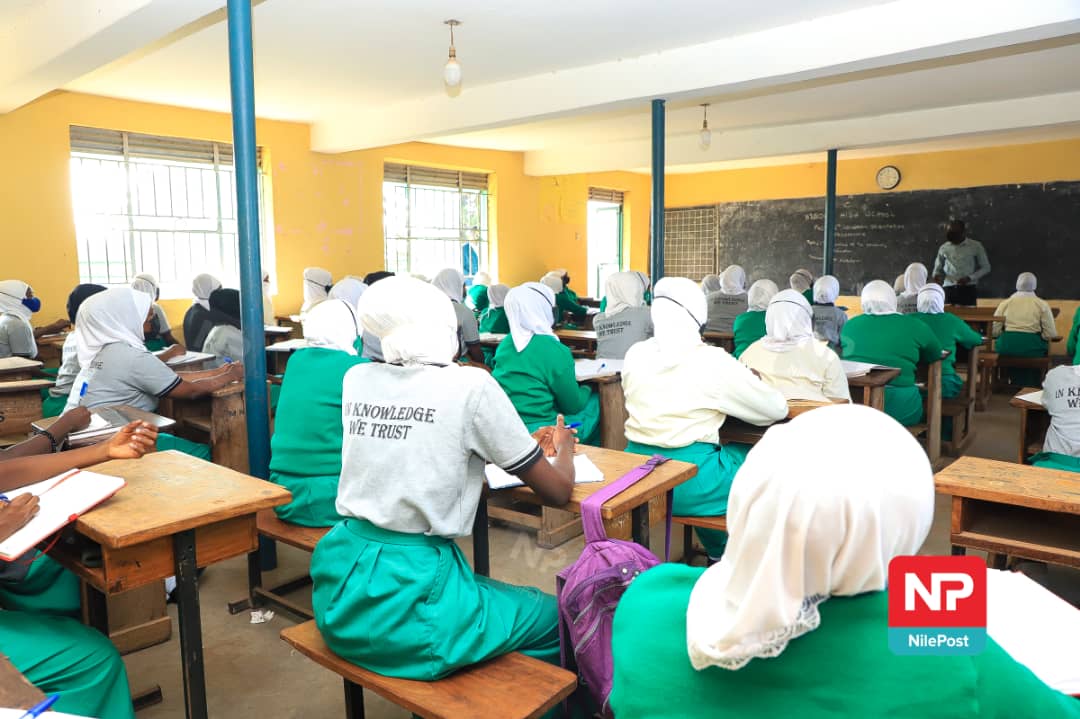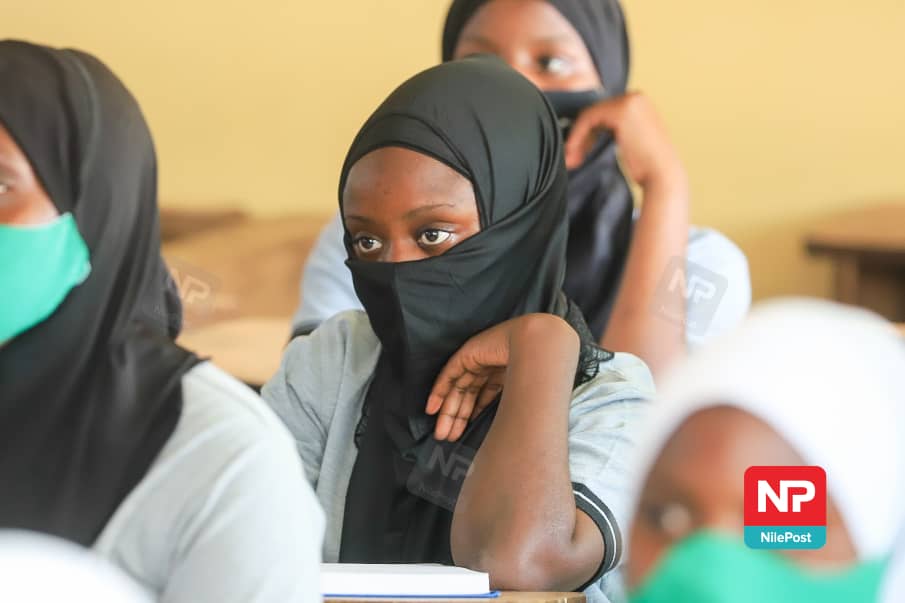OPINION: Government should interest itself in the national learner turnout
On 10th of January, 2022, Uganda, finally ended the world's longest school closure. Although Uganda ranks nowhere in the most COVID-19-affected countries, leadership in Uganda found it rational to close schools for the longest time in the world -- virtually two years. The rationale for such a long closure is something I would like to read or listen to.
Because schools were unnecessarily closed for a very long time, significant risk for learners not to return to school was created. And, despite the long school closure, leadership in Uganda made very insignificant efforts to keep learners in books. A study in April, 2021 by the Forum for African Women Educationalists found that for over half of the country's 15 million school pupils, education had stopped entirely, with primary school children the worst hit.
Keep Reading
 A class ready to begin In class again (Photo by Francis Isaano).
A class ready to begin In class again (Photo by Francis Isaano).
I even suspect that for the vast majority of learners who kept learning, it was for their parents' efforts, not government. Because it's true that an idle mind is the devil's workshop, learners who had reached puberty and those who reached it within the lockdown, became more sexually active.
The government's health data show that cases of pregnancy among girls aged 10-14 more than quadrupled between March 2020, when the schools were first closed, and September 2020. If we assume that pregnancies among girls of the same age group grew at the same rate from September 2020 to 10th January 2022, we can conclude that pregnancy cases that were recorded in September 2020 have now more than quadrupled too.
Uganda's National Planning Authority estimated in August, 2021 that 30% of all the country's learners would not be going back to school due to teenage pregnancies, early marriages, and child labour. It's certainly not possible that between August 2021( when the National Planning Authority estimated the 30%) and 10th January 2022( the date when learners resumed school), cases of teenage pregnancies, early marriages and child labour didn't occur.
 A student writes in her book at school in class again (Photo by Francis Isaano).
A student writes in her book at school in class again (Photo by Francis Isaano).
Therefore, the percentage of learners which hasn't reported back to school for the same reasons could be higher than 30%. There are, of course, other learners who haven't reported back to school for different reasons -- financial, lost interest, demolished or collapsed schools etc. In Uganda, it's possible for a learner to stop schooling because a specific school has been demolished. There are sub-counties with only one school and if that school gets demolished, some learners (especially the young and physically weak ones) may find it impossible to trek long distances.
Projections are always flawed. And knowing my country's attention to detail, I'm inclined to believe that our projections are even more flawed. Now that learners have resumed schooling, shouldn't our government have a responsibility of picking interest in the actual national learner turnout, instead of relying on some projections that were made during lockdown?
Some diligent media houses, in the interest of informing, could have helped but I doubt any Ugandan media house has the requisite resources and structures to compile the statistics independently. From government, we should expect to know which region registered the lowest and highest learner turnout and if possible, corresponding reasons too.
Knowing total learner turnout in different regions will help government to identify most affected regions and therefore intensify campaigns to keep learners in school in those regions. It will also help inform other policies and decisions as education is an ever demanding sector.
Of course, I can't help expressing my scepticism about political willingness. There are conspiracy theories that leadership in Uganda is deliberately stifling formal education under the compulsion of love for power. Love for power is a very strong desire, which is underestimated by the powerless and uncontrollable to the powerful. It's a desire which is intensified by one's experience in power. After experiencing the delights power can afford, it becomes irresistible to maintain power at all costs.
A man under influence of desire for power has little or no sense of morality. Rationality too, is usually foregone. There is a wholly fallacious theory advanced by some earnest moralists to the effect that it is possible to resist desire in the interests of duty and moral principle. I think this is fallacious, not because no man ever acts from a sense of duty or morality, but because duty or morality has no hold on him unless he desires to be dutiful or moral. If you wish to know what men can do, you must know not only, or principally, their material circumstances, but rather the whole system of their desires with their relative strengths.
Museveni and his surrogates in Uganda have the strength or capacity to stifle education if highly educated and articulate folks threaten their power. And it's true, the most educated and articulate urbanites in Uganda are the most rebellious against the Museveni administration. Look at most universities around Kampala and in other urban centres. Check social media platforms such as Twitter. Such places are opposition strongholds because educated individuals can clearly discern the rot of the regime, and our regime has incredible rot to be discerned.
Highly educated folks also have higher chances of accessing decent jobs and decent income, which gives them the ability to divert their attention from pursuing daily bread to questioning the nature of politics in their country. A starving person or one on the brink of it is surely more interested in food or a brown envelope than democracy. To government, therefore, facilitating the increment of educated folks could be tantamount to giving one's enemy more lethal ammunition. Also, powerful individuals in this country could have taken note of Maximilien Robespierre's words: "The secret of freedom lies in educating people, whereas the secret of tyranny is in keeping them ignorant."
I'm even more sceptical about political willingness because our president and some of his colleagues were motivated by the love for power to involve themselves in an armed struggle for five years in order to achieve power. I believe it's only the love for power that motivated our president and some of his colleagues to go to Luweero because they've substantially failed on the key elements in their famous 10-point program and have resisted handing over power. If they truly believed in their 10-point program, and have substantially failed on implementing it, they should be handing over power. Failure to handover power after more than three decades only proves that love for power was the sole motivation.
I conclude on this point of reflection: Love for power motivates people to contest in elections, forego business and other freedoms, but if your president was motivated by love of power to pursue power through an armed struggle -- where one is almost one bullet away from the grave -- there should be profound scepticism about his willingness to leave power and much worry about what he is capable of doing in the multiple efforts to maintain it.













